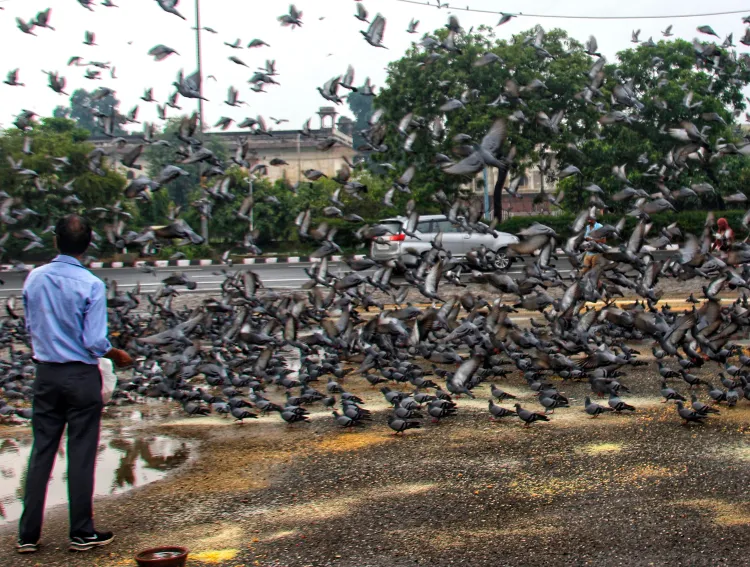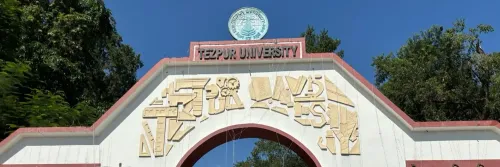Why Did Mumbai Police Register the First FIR for Feeding Pigeons?

Synopsis
Key Takeaways
- The first FIR for feeding pigeons has been registered in Mumbai.
- The ban has been enforced due to public health concerns.
- The Bombay High Court has mandated the BMC to act against offenders.
- Animal welfare groups are protesting against the ban.
- Police are utilizing CCTV to identify offenders.
Mumbai, Aug 2 (NationPress) In a groundbreaking enforcement action, the Mumbai Police have filed the city's inaugural criminal case for the act of feeding pigeons in public areas, now classified as a punishable offense under the Bharatiya Nyaya Sanhita (BNS).
The FIR was registered at Mahim Police Station against unknown individuals caught feeding pigeons near the kabutarkhana on LJ Road, in proximity to Hinduja Hospital and a Domino's Pizza outlet.
This action stems from a sweeping directive issued by the Bombay High Court on July 31, which mandated the Brihanmumbai Municipal Corporation (BMC) to pursue criminal charges against those violating its long-standing prohibition on pigeon feeding at public and heritage sites.
The court highlighted severe public health risks, such as respiratory infections and environmental harm, arising from uncontrolled pigeon gatherings.
According to law enforcement officials, the suspects arrived on a two-wheeler around 6:50 a.m. and scattered feed for pigeons at the kabutarkhana. Due to an obscured number plate, the individuals remain unidentified; however, police are reviewing CCTV footage to locate the vehicle.
The FIR invokes Sections 223 (disobedience to a public servant’s order), 270 (malignant act likely to spread infection), and 271 (negligent act violating quarantine rules) of the BNS.
The Bombay High Court, presided over by Justices Girish Kulkarni and Arif Doctor, expressed discontent over ongoing violations despite previous refusals to grant interim relief to pigeon feeders.
“If they disregard the rule of law, then the law must catch up with them,” the bench remarked, stating that such actions pose a public nuisance and threaten human safety.
In response, the BMC has ramped up its enforcement actions. At the iconic kabutarkhana in Dadar West, unauthorized structures have been dismantled, and pigeon feed removed.
Officers will now be stationed in three shifts to ensure compliance, supported by beat marshals and police personnel. CCTV surveillance has also been mandated in high-risk areas.
This crackdown has led to protests from animal welfare organizations, which argue that the ban infringes upon constitutional duties under Article 51A(g) and the Prevention of Cruelty to Animals Act.
A coordinated protest involving over 500 activists took place in Santacruz earlier this month, opposing the civic ban.
The next compliance hearing is scheduled for August 7, where the High Court will evaluate medical data from KEM Hospital and enforcement reports from the BMC and Mumbai Police.










